4 Highlights from the 2018 Deloitte Millennial Survey
TABLE OF CONTENTS
Did you know that millennials will make up 75% of the workforce in 2025?
Yes, you probably did because this demographic gets plenty of attention. But it’s not often that we see an extensive, data-driven piece like the 2018 Deloitte Millennial Survey.
So we’d like to share our top 4 highlights with you, focusing on the learning & development angle - of course! We’re especially interested in the insights offered on how employers can attract and attract retain millennials.
1. Young workers are looking to businesses to help them develop the necessary skills, including the soft skills they believe will be more important as jobs evolve.
Topics including interpersonal skills, confidence, critical thinking and innovation came up in the survey. Traditional forms of delivery such as workshops are still valuable, but need to be complemented and reinforced by bite-sized learning that can be accessed regularly at the point of need - see point 4).
Recommendation: Don’t forget about soft skills when developing a training curriculum, and use a blended approach for delivery.
2. 43% of millennials expect to leave their jobs within 2 years.
We know that high attrition rates are costly, disruptive and demotivating for all involved.
So what can we do to increase loyalty? According to Deloitte, 73% of young professionals who plan to stay with their employers for more than 5 years say their organisations are strong providers of education and training. This is because the role of employer as educator continues to take on significance and can’t be ignored.
The question is: how do employers deliver this education in a way that millennials find engaging and informative? As stated by Deloitte, this group have ‘grown up with...smartphones in their hands’ so it has to be mobile and has to be in short, regular bursts (yes, otherwise known as microlearning).
Recommendation: Fit in with millennials’ consumption of content by using mobile to deliver corporate education in an engaging, accessible manner.
3. The gig economy holds a clear attraction for millennials.
Deloitte found that among those millennials who would willingly leave their employers within the next two years, 62% regard the gig economy as a viable alternative to full-time employment
Why? The promise of a higher income, with increased flexibility and freedom.
So far, so good, but it’s just as important - perhaps even more so - for gig economy companies to provide onboarding and ongoing training to their freelancers. If this doesn’t happen, productivity, engagement & brand perception will suffer. Check out our blog on reaching learners in the gig economy, drawn from our experience with companies including Uber and Rappi.
Recommendation: Provide gig economy workers with access to training. This will give them the skills and knowledge they need for them (and the company) to succeed, and will make them feel part of the wider organisation.
4. 81% of millennials state that self-paced learning will be important to help them perform their best.
The Deloitte report contains the following words: continuous, self-directed and self-paced.
What does this mean? Useful content needs to be available at the point of need, across all devices, so that learning fits around busy schedules and competing demands.
The learning platform needs to be as intuitive as WhatsApp and as addictive as Facebook, meaning that new nuggets of interesting content need to be available every time a user drops in. These don’t have to be entire courses - daily tips, company news and fun facts are great ways to engage learners and make learning a regular habit.
Recommendation: Put learners in the driving seat by allowing them to choose when and where they want to refresh or upgrade their skills and knowledge.
It's clear that training and development opportunities are seen as extremely important to millennials, but what is equally important is how these opportunities are delivered.
Want to see how eduMe's mobile-first, microlearning platform meets millennials' needs?
Join 10,000+ frontline leaders
Subscribe to ‘Training the Frontline’ and get weekly insights sent straight to your inbox.

